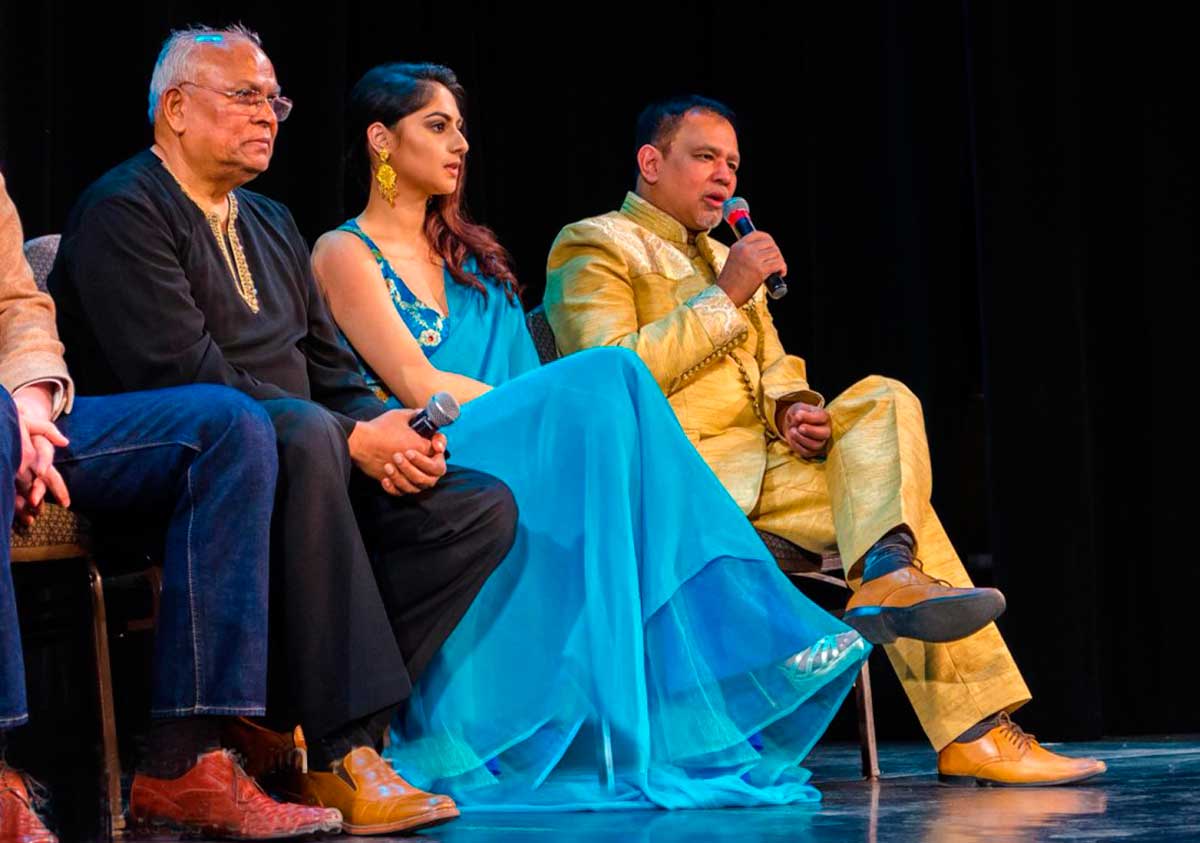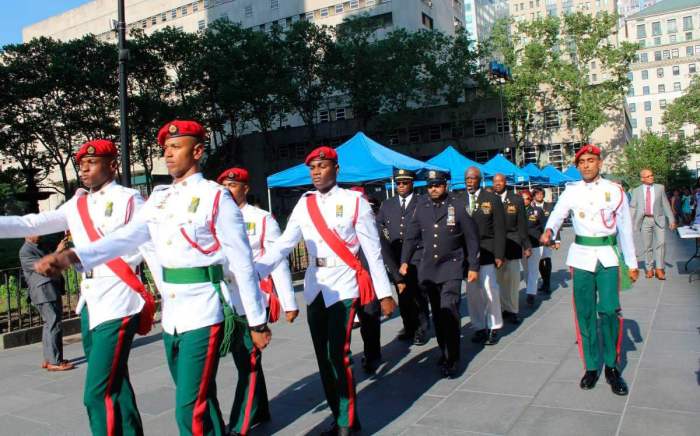“Echos from the Plantation,” a docudrama that chronicles 180 years of East Indians in Guyana, and draws parallel between Indian and African indentured workers who braved inhumane conditions at the hands of slave masters, received rave reviews at its first screening in Brooklyn.
Indo-Guyanese nationals commemorated their arrival on May 5, 1838, a period that was very important to thespian Kishore Seunarine, who reflected on what his ancestors endured after 396 of them reached Guyana aboard the Whitby and Hesperus, and worked on the plantations.
This documentary is a labor of love for Seunarine, a passionate actor, spoken-word poet, and voiceover professional who used his narrative voice to bring to life this important story, three years in the making, and not known to many Guyanese nationals.
Seunarine told Caribbean Life at the May 5 screening, that he wanted to do something impressive, and lasting to mark the 180 years bringing alive the spirit of determination and persistence of his ancestors.
The Guyana Cultural Association of New York Inc. in collaboration with the Guyana Consulate, New York, screened the film as part of a cultural and heritage forum, after the University of Charlotte, North Carolina Asian Film Festival highlighted the historic drama.
The first screenings were held in Guyana, where the entire film was shot on location.
Using his resonant voice, Senaurine summed up the documentary by saying: “On this day 180 years ago, our ancestors arrived in “British Guiana’ under much duress, no one really knows their struggles for they were the first, it is sparsely documented.”
“Unlike other historic human atrocities we only know through stories that our parents and grandparents told, and that too, relied on memory. Echos from the plantation scratches the surface to break through the crust of time, and reveal snippets of their struggles, honored in their determination and the resilience of our heritage.”
“I hopes to ignite a discussion among our selves, and tell the story for future generations, who will tell it with pride, compelled by duty, and marvel with admiration, for this is our story,” recited Seunarine, who produced and directed the documentary.”
Except for one Caucasian male who played the role of a slave master, the entire cast and crew were Guyanese, who, according to Seunarine gave moving performances that made the documentary spectacular.
He applaud the actors, many retrenched cane-cutters who gave an authentic feel of what the laborers endured, working long hours barefooted in the harsh cane-fields under rough conditions.
Singer Surendra Ramdehal who returned to Guyana after 36 years to be part of the project, gave a melodic performance in the majestic musical score, said Seunarine.
He thanked Alex Wayne and the late Pandit Gansham Lakeram for their help in casting amateur actors from both Guyana and the United States, who did their best, for the success of the drama.
Seunarine’s niece, 17-year-old Satwika Reddy, who played the role of a grand daughter whose grandfather, narrated the tale, said while growing up she had heard stories from her grandparents.
“This experience taught me what I didn’t know. It was wonderful being in the movie and being directed by my uncle,” she said.
Courtney Noel, singer / lyricist of the hugely popular “I love my Golden Arrowhead,” and other Guyanese patriotic songs, said as a descendant of East Indians who came from Madras and Kerala in search of a better life, “I was thrilled to watch Mr. Seunarine bring this story to life on screen.”
“Obviously a work of great passion and pride ‘Echos’ soars majestically and captures the viewers attention immediately.”
“With an intriguing score and compelling performances from its lead actors, ‘Echos’ will leave you lamenting the fact that it wasn’t made as a television series a la “Roots” and “The Holocaust,” said Noel.
“As a proud Guyanese I thoroughly enjoy viewing any projects which feature my country and I was doubly pleased to see a recreation of life in Guyana as the indentured servants lived it.”
“I strongly recommend viewing this film, which is sure to provoke impassioned discussions of Race, Class and Culture as well as the effects of Colonialism on the world in general and Guyana in particular,” said Noel.
“Echos” still “echoes” in my mind, said Noel, producer and director of the soon to be released video, “GT Woman,” a tribute to the outstanding achievements of women in the homeland.
For upcoming screenings, or to arrange a screening, please log on to www.echos

























